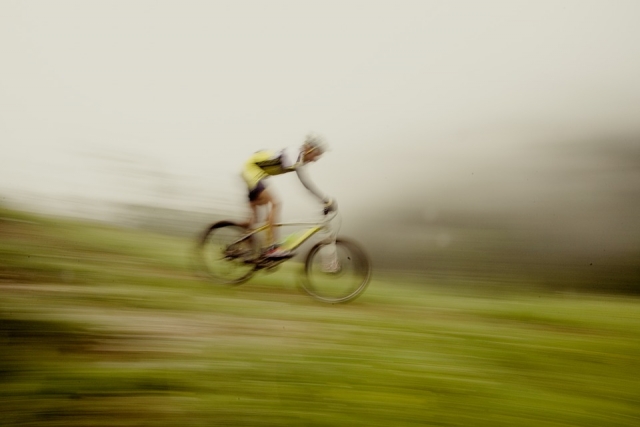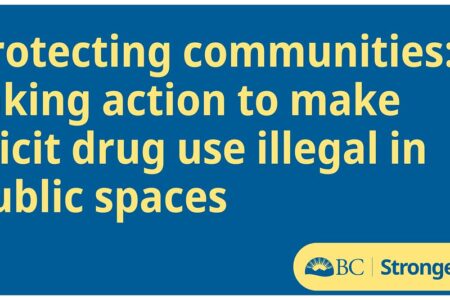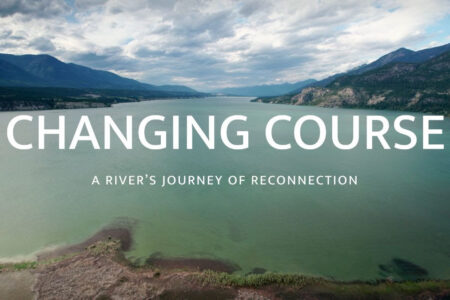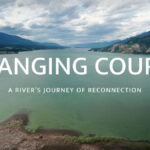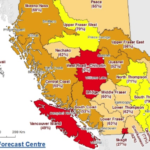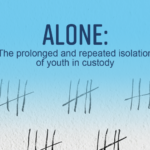Editorial Rant: Speed, Mountain Biking, and Being Nice
We Canadians are such nice people. We don’t look very hard for opportunities to sue other people, unlike our more litigious neighbours south of the border. Here’s an example from right here in the Greater Rossland area. True story:
A mountain biker was riding uphill on a popular trail when an out-of-control downhill rider speeding along collided with her — very hard. She suffered broken bones and a severe concussion. She spent weeks in the hospital, and had to take a month off work. Over a year later, she still suffers the effects of the impact. Despite all this, she did not sue the rider who hit her. Nor did that rider ever offer her any form of settlement. She received no compensation at all for her injuries or lost wages.
Yes, people who ride mountain bikes accept the hazards of the sport, and there are hazards. Rossland is a great place for physiotherapists and orthopaedic surgeons to make their livings, though not entirely because of mountain biking; skiing and snowboarding also help them earn their keep. But one hazard that a mountain biker should NOT have to accept is the hazard of being smashed by some other rider speeding out of control, and having no recourse in the event of serious injury that may render one unemployable for a longer time. Or for life.
Speed is a thrill. We all get that. Our trails are used by hikers as well as bikers, as they are intended to be, and there is a well-established trail etiquette — well, two well-established trail etiquettes, really: the official one requires bikers to “yield” to hikers. The unofficial one is more practical, and most hikers will considerately step off the trail for bikers, at least in places where it is possible to step off the trail — especially for bikers climbing up a trail, because it’s generally harder for them to get started again. But it’s not even possible to get out of the way of some out-of-control riders speeding downhill, because of their speed; they’re upon a person with no notice: SMASH!
What does “out of control” mean? It’s simple. If a rider is in control, she can stop her bike without hitting someone else using the trail. She doesn’t go swooping around blind corners at a speed that makes stopping, fast enough to avoid hitting someone just around that corner, impossible. A rider who is out of control cannot stop, or otherwise avoid, a hiker or another biker on the trail without being able to see that other person some distance away.
Biking so fast as to be out of control on trails open to a variety of users is a form of negligence. If someone gets hurt by an out of control biker, it becomes negligence causing bodily harm. Such a biker could be sued for injuries that he caused, even in our less-litigious land. He could even end up facing criminal charges.
Our hiking and biking trails are a precious community resource. They attract people to our area, which is an economic benefit. Many people consider trails an important part of our health system, because getting out for exercise on the trails keeps people fitter, healthier, and even happier: regular exercise is one of the best ways to avoid depression. But getting injured by an incompetent rider — that is, one riding out of control — can undo all the health benefits of the exercise in one smash. Injuries inflicted by others on the trails are very rare, but that fact is no comfort at all to the rare injured person.
The real answer is for riders to keep their bikes and their speed under control. If other users cannot depend on safe riding practices, what then?
Do we need riders to carry third-party insurance? There are compelling arguments against that. Some people could regard their insurance as permission to ride too fast because “Hey, it’s OK — I have insurance!” That excuse might not hold up if one of the terms of the insurance is that the rider must always be in control. And if riders are in control, well, the insurance is so unlikely to be needed that it would be an unnecessary expense.
Another argument against requiring cyclists to carry insurance is a public-policy argument: cycling should be encouraged, not discouraged, and a requirement for third-party liability insurance would be a barrier to participation.
Cyclists are already protected by insurance in the case of collisions with motor vehicles, as long as the vehicle’s driver or owner are insured. And cyclists who want to carry third-party insurance can get it — by joining Cycling BC first, or by belonging to a club that is a member of the International Mountain Biking Association, and applying for insurance.
What about the owners or “occupiers” of the land that our trails cross? BC’s Occupiers Liability Act exempts land-owners from liability for injury to people who use their land for recreational purposes, unless they personally are paying the landowner directly for that privilege, or unless the landowner deliberately sets traps designed to hurt people. So forget about suing the landowners, or the group that builds and maintains the trails. If you go on those trails and hurt yourself or some other person, or if another person hurts you, the landowners and trail-builders are not responsible. You have willingly assumed the risks of using the trail.
Here’s betting that no one willingly assumes the risk that other trail users will behave so incompetently and irresponsibly as to hit and injure them; in that event, it is the irresponsible user who could be held liable for injuries — even in Canada, where we are so nice that we apologize to someone who has just stepped on our foot or bumped us with their shopping cart; oh, sorry!
Here’s hoping that we stay nice and relatively non-litigious — and that we will never have any occasion to consider litigation against anyone mis-using the trails.


